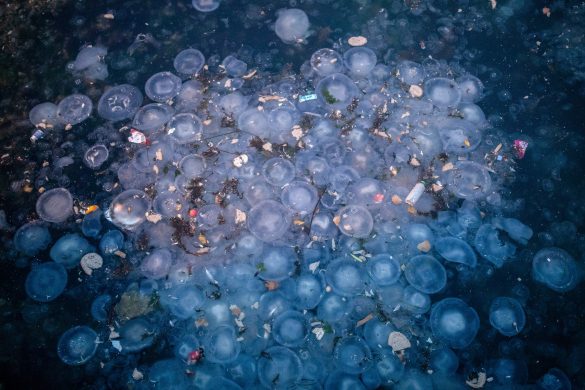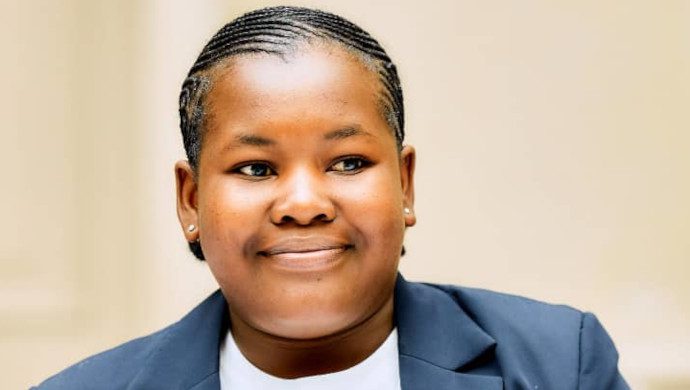Og det er nogle rigtige slemmerter, der er nomineret: Public Eye 2012: With Nobel Laureate Stiglitz Against Unscrupulous Corporations
At the end of January, within sight of the World Economic Forum (WEF), the Berne Declaration and Greenpeace Switzerland will once again confer the Public Eye Awards for the worst cases of contempt (foragt) for the environment and human rights.
Nominated this time for the (in)famous awards are the following six corporations: Barclays (UK), Freeport McMoRan (US), Samsung (KOR), Tepco (J), Vale (BRA) and the Swiss corporation Syngenta, according to a press release from the “Public Eye” campaign Friday. .
Online voting for the 2012 People’s Award has begun on www.publiceye.ch, accompanied by snarky (lokkende) advertising parodies. Joseph E. Stiglitz, Nobel laureate in economics, will speak in Davos at the awards ceremony press conference about the global crisis.
The online voting for the worst corporation of the year began on 5th of January 2012 and runs until January 26, 2012 at midnight (CET). This year’s short list presents the six most scandalous cases, selected by an expert panel out of a total of over 40 cases nominated by NGOs.
De seks værste, der kandidater
The British banking giant BARCLAYS is the world’s fourth-largest bank and arguably the fastest-growing food speculator worldwide. It drives up global food prices at the expense of the poorest.
In just the second half of 2010, a stunning 44 million people worldwide were driven into extreme poverty due to rising food prices – and women in the Global South are often the hardest hit. Barclays enjoys close ties to the British government, which is threatening to block European regulation that would curb food speculation.
Also in the running is US mining corporation FREEPORT McMoRan. From its base in Arizona, it has operated the Grasberg Mine – the world’s largest gold and copper mine – in West Papua (Indonesiens vestlige halvdel af New Guinea) for 45 years without regard for nature or people.
The mine produces 230.000 tons of tailings (affaldsrester af sten) contaminated with heavy metals every day, resulting in a blanket of waste rock with a radius of up to 10 kilometers and up to 15 meters deep that kills everything in its path and threatens a World Heritage site. Freeports activities lead to frequent and blatant human rights violations, including the torture of mine opponents.
SAMSUNG, South Korea’s largest conglomerate, is nominated for using banned and highly-toxic substances in its factories without informing or protecting its workers. As a result, at least 140 workers were diagnosed with cancer, of which at least 50 young workers have died.
Despite clear evidence, Samsung denies its responsibility and publicly discredits the sick and deceased, as well as their relatives.
Against its better judgement, TEPCO, Japan’s largest energy company, grossly neglected the structural safety of its atomic power plants in order to cut costs. The meltdown at Fukushima (atomkraftværket) and the resulting radioactive contamination of people, land and sea could have been prevented.
The company also provided information that was verifiably false or very late in coming. A culture of favors, cover-ups and falsifications reigns at Tepco.
VALE, the fifth nominee, is Brazil’s second-largest corporation, the world’s second-largest mining firm, and the largest global producer of iron ore. The corporation has a 60-year history tarnished by repeated human rights abuses, inhumane working conditions and the ruthless exploitation of nature.
Vale is currently taking part in the construction of the Belo Monte Dam in the Amazon. The dam is likely to result in the forced relocation of 40.000 people, who have neither a voice in the matter nor will they likely receive compensation. An area the size of Lake Constance would be flooded, with disastrous consequences for the indigenous population as well as flora and fauna.
Last but not least, Swiss agrochemical and seed producer SYNGENTA continues to aggressively market its highly-toxic Paraquat herbicide (ukrudtsmiddel), which harms the people in the Global South. Countless farmers have died after applying Paraquat on their fields or have been gravely poisoned.
Syngenta’s Atrazine pesticide (plantegift) has contaminated 90 per cent of drinking water in the US Midwest. The corporation conducted a smear campaign against a scientist critical of Atrazine, and attempted to buy his silence.
On January 27, 2012 (noon at Hotel Montana), the WEF-critical Public Eye will illuminate the irresponsible behavior of major corporations via an international press conference in Davos, where the recipients of the Global Award (jury selected) and the People’s Award (selected by the public) will be “honored.”
Star U.S. economist and Nobel laureate Joseph E. Stiglitz will also provide straight talk about the role of global corporations in the current global crisis, and which forces could reveal a way out.
Nominations, information and voting at www.publiceye.ch













